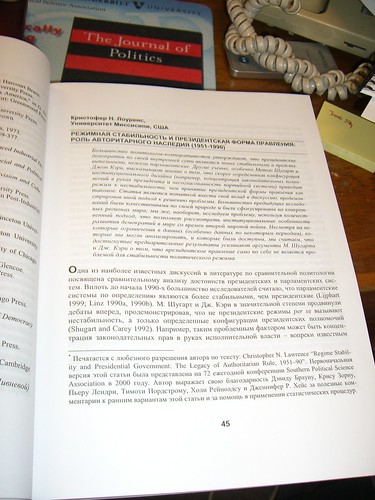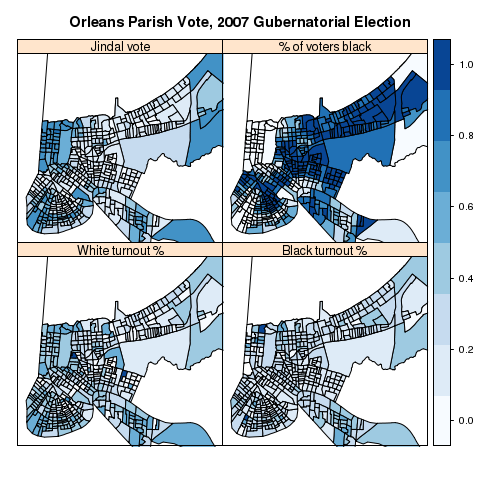Michael Bower has an op-ed at Inside Higher Ed about the role of disciplinary associations in the job-search process that’s worth posting to one’s office door, even though it’s about history rather than political science. Make the appropriate substitutions in the quote below and it applies equally, if not more so, to our discipline:
As a national organization and the most powerful entity in the historical job market, the AHA has done surprisingly little to help the newest members of their profession. On the whole, historians pride themselves on their concern for social justice. In 2005, for example, the Organization of American Historians uprooted its annual conference and moved it to another city in a show of solidarity with hotel workers. When it comes to the plight of the discipline’s own working class, the unemployed job seeker, this compassion and concern is absent. In its place is an annual report from the AHA talking about how good it is for some. For others, there isn’t much the AHA can do. I find this lack of action, especially when compared to what is normally shown for the less fortunate, disheartening.
While the AHA can do nothing to overcome the dearth of tenure-track positions (which is a reality that deans, trustees, and legislators control), the association has a great deal of control over two things: job market statistics and the interview process. These areas, which some might say are of secondary concern, have made the job search a very inhospitable place. For one, the association could conduct a statistically sound study of the job market based on an actual survey of departments and job seekers. Drawing attention to the total number of jobs and the number of Ph.D.’s produced in the past year overlooks the fact that visiting faculty and independent scholars are also on the market. A more thorough census would provide better information to AHA members and possibly even a snapshot of many other employment concerns, including how the positions stack up in terms of pay, tenure-track status, and other key factors.
More importantly, the organization could do a number of things to reform the poorly designed hiring process that leaves applicants floating in a limbo of uncertainty throughout much of November and December [for political science, since we don’t even have a real hiring event: add September, October, January, February, March, April, and May – ed]. The lack of communication between search committees and job seekers is so common that it is now taken for granted along with death and taxes. Job applicants no longer expect any professional courtesy. While this results in a good bit of anxiety for anyone on the market, it can also lead to undue financial hardships that could easily be avoided. As a former editor of the H-Grad listserv and one currently searching for a tenure-track position, I can safely say that these concerns are pressing on the mind of most applicants.
The recommendations:
1. Take a more accurate census of the job-seeking population annually.…
2. Make the Job Register service a privilege that has to be earned. The AHA has a good deal of influence on the job market but has yet to utilize it in any significant way. Since most tenure-track positions are advertised in the AHA Perspectives and interviews are conducted at the AHA annual meeting, the AHA should mandate certain conditions that must be met before interviewing and advertising space is sold. If those conditions are not met, the AHA should deny departments the right to use their facilities and their ad space, thus adding substantial cost to the interviewing institutions. ...
3. Require that search committees inform applicants of their interview status via e-mail 30 days before the annual meeting. [This would require a real hiring event in political science to be effective in the first place. – ed]
4. Establish a general listserv for search committees and job seekers. Search committees are notorious for their lack of communications. Job seekers have pooled their resources into a number of academic career wikis, but these can be misused and are dependent on the truthfulness of the poster. The AHA can alleviate this uncertainty by creating a listserv and mandating that those who use the Job Register would agree to notify the AHA by e-mail at important phases of the job search process. Which steps those are would be open for negotiation, but everyone, committees and candidates alike, would know what those benchmarks are ahead of time. The AHA, and this is the critical step, would aggregate these notifications and send them out via a daily listserv to all job applicants who choose to subscribe. Under this system, for example, all who applied for the position in Pre-Modern China at Boise Valley State could know that the search committee has made AHA invitations, has made invitations for on-campus interviews, or that Dr. Damon Berryhill had accepted the position. Job applicants, who usually have no idea how the searches are progressing, would be more informed when fielding other offers and would no longer need to contact each institution directly for updates. Participation would also be in the hiring institution’s best interests, as it would reduce the need to communicate one on one with job candidates (a very time consuming task for search committee members) but still create a much more open system of communication for job seekers.

![Welcome to Signifying Nothing [Signifying Nothing]](/local/memlogo-1.png)

